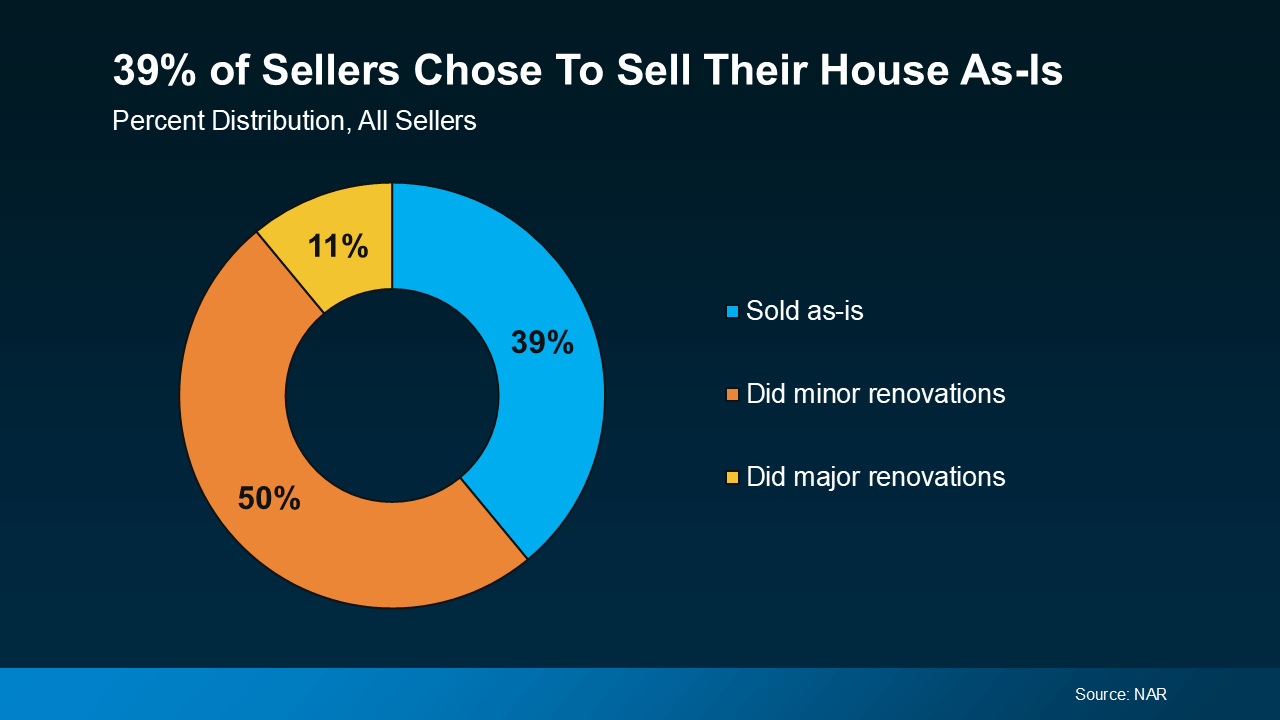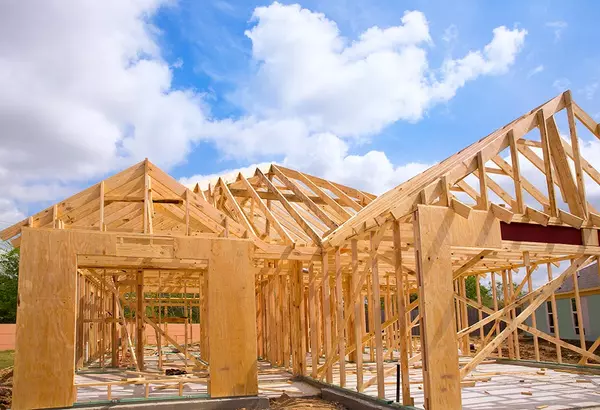When it’s time to sell your house, you may wonder whether to tackle repairs or sell it as-is. According to a recent report by the National Association of Realtors (NAR), most sellers (61%) choose to make at least minor repairs before listing. However, selling as-is isn’t uncommon—39% of sellers skip repairs altogether. (see chart below):

If you’re feeling overwhelmed by the thought of fixing up your home due to time, budget, or resource constraints, selling as-is might sound appealing. But before you make that decision, let’s explore what it entails and how it could impact your sale.
What Does Selling As-Is Mean?
Selling a home as-is means you’re offering it in its current condition, without committing to any repairs or improvements, even after a buyer’s inspection. This approach signals to potential buyers that they’ll inherit any existing issues with the property.
While it can be a relief to avoid repair costs and save time, there are trade-offs to consider. Typically, homes that are updated or in better condition tend to attract more buyers and higher offers. On the other hand, selling as-is may result in fewer interested buyers, longer time on the market, and ultimately, a lower sale price.
That said, your home will still appeal to a specific group of buyers. In fact, a recent survey shows that 56% of buyers are open to purchasing homes that need some work, especially in a market where affordability and inventory remain challenges.
The Pros and Cons of Selling As-Is
Pros:
- Avoid the upfront costs and hassle of repairs.
- Reduce the time it takes to get your home on the market.
- Attract buyers looking for a lower price or a fixer-upper opportunity.
Cons:
- May result in a lower sale price.
- Could take longer to sell due to reduced buyer interest.
- Might limit your buyer pool to those specifically seeking as-is properties.
How an Agent Can Help You Decide
Navigating the decision to sell as-is or make repairs can be tricky, but an experienced real estate agent can provide valuable guidance. They’ll help you understand how your home compares to similar properties in your area, what updates could maximize your sale price, and how to price your home competitively based on its current condition.
If you decide to sell as-is, your agent will focus on highlighting the home’s best features—whether it’s the location, lot size, or unique design—to appeal to buyers who see its potential beyond the repairs.
Bottom Line
Selling as-is is a viable option in today’s market, but it’s important to weigh the pros and cons carefully. If you’re considering selling your home, reach out today. We’ll work together to evaluate your options and determine the best strategy to meet your goals.












